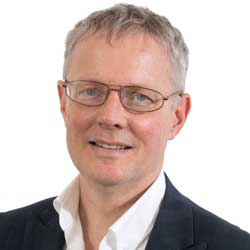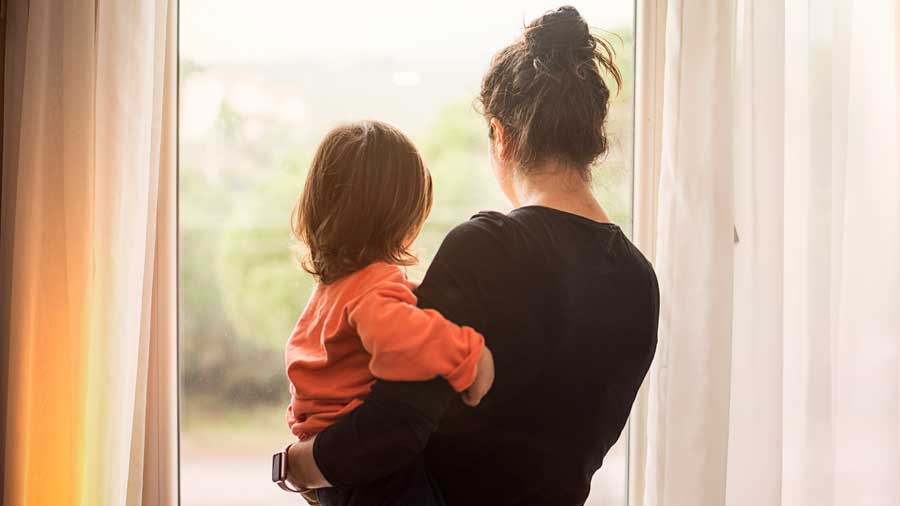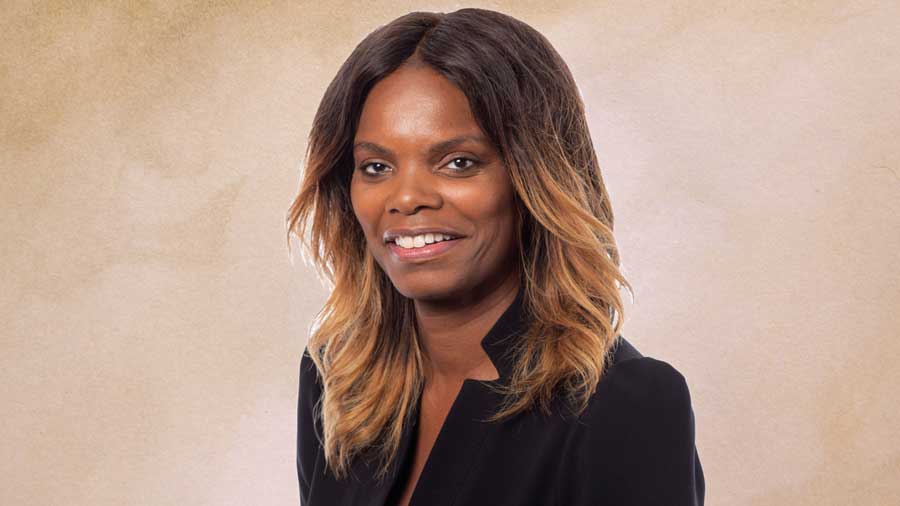
GOVERNANCE
INTERVIEW
“I became homeless. If I knew then what I know now, I would have asked for help, but I was too embarrassed.”
INTERVIEW
“I became homeless. If I knew then what I know now, I would have asked for help, but I was too embarrassed.”

GOVERNANCE

James Tickell
Partner, Campbell Tickell
Lara Oyedele is currently vice president of the Chartered Institute of Housing, and will become its president in October 2022. She has worked in housing for 30 years, including a spell as chief executive of Odu-Dua, a small BME housing association in London. James Tickell, partner at Campbell Tickell, asks Lara how her life so far – including a period being homeless – has shaped her priorities as CIH president.
What were you like as a child, and how would you describe yourself?
That is a big question, and I haven’t spoken about it a lot. I was a quiet and insular child. I spent a lot of time in a cubbyhole space under the stairs. I would sit there and read and imagine the future, and asked the world lots of big questions like, why is the sky blue?
What is your spirit animal?
It would be an owl. That is because I do a lot of my best work at night. They have big eyes, so they can see what’s going on around them. I think owls are underestimated as animals.
Your personal values are to be compassionate and caring? Does that sum up your purpose in the world?
I’m happy to say yes. The only reason for my existence is to help others, and I do spend a lot of time thinking about my purpose in life. I don’t have children so I’ve reached the conclusion that my job is to help other people. When I had a difficult time at Odu-Dua, I did spend a lot of time afterwards reviewing my life and its purpose. I asked myself, why do I work so hard? What is the point of work?
If you can, tell me a little more about the difficult time at Odu-Dua.
Ultimately it was a good learning experience. I learned about good governance, and how important it is to have a functional board. Chief executives and boards do fall out from time to time, and they always will. My big takeaway is that board members need to be there for the right reasons, and ready to do the right thing.
“Chief executives and boards do fall out from time to time, and they always will. My big takeaway is that board members need to be there for the right reasons, and ready to do the right thing.”
I think you’re probably the first president of the CIH who has ever been street homeless at some stage in their life. Was it homelessness that brought you into housing?
In a way, yes it was. My first job was part of the youth opportunities programme, and I was the assistant to an assistant in the housing office. Ironically that was when I became homeless. If I knew then what I know now, I would have asked for help, but I was too embarrassed. When I got my council flat, I was able to go back and finish my education before going to university for a degree in journalism.
With my degree, I went to America, but then came back and decided I didn’t want to be a journalist. I did some research into how to become a housing professional, and I was very fortunate that the Economic and Social Research Council were funding graduates to do a masters degree in housing. I got a place at the London School of Economics. Now I can help people who were like me when I was homeless all those years ago.
So now, you’re going to be president of the CIH. Can you give us two top priorities for your term in office?
Yes, it’s a shame it’s only one year, as that is a short time to make a big difference but that is what I want to do, make a big difference. Firstly, on the charitable side, my campaign is going to be called ‘Walking in my Shoes’. I want everyone who participates in a CIH event over the year to donate at least one pair of shoes to the charity Shoe Aid.
In terms of policy, I’ve chosen the boardroom, trying to ensure that boardrooms are truly diverse – again, that is about walking in my shoes. I’m on two boards at the moment, and I’m in a small minority as a woman from an ethnic minority background. I’ve been in many boardrooms and council rooms, but I'm often the only black or brown face in the room, and one of few women.
Would it be fair to say that during your career you have encountered real, outright racism?
I asked myself that question a lot, but I want to give you a different angle on the response. Among black women, there is a lot of discussion about hair discrimination. When I went to university, I was very poor, and the cheapest thing to do with my hair was to grow dreadlocks.
By the time I graduated, and was working at Notting Hill, my hair was halfway down my back. Then I had it cut, only because I got bored of dreadlocks. I’ve often wondered whether there were jobs I applied for but didn’t get, because of my hair. But I suppose I shall never know.
What about people who commit micro-aggressions in everyday speech? Is that part of your experience?
Oh yes. That is absolutely standard. I have got to the stage where I just ignore that kind of thing, and move on with the bigger picture of my life. There is an example from my early career. Whenever my employer won an award, I would be the one sent to pick up the award from the stage. They wanted to virtue signal their diversity, so I went to a lot of ceremonies. I ticked all the boxes, but that was fine by me. I used it to my advantage, to network, and get to know more people. I could have taken it as a negative thing, but actually it was an opportunity.
What makes you angry?
Poverty and homelessness. People sleeping rough, not able to sleep in their own homes, in this very prosperous society. I sometimes think we have too much wealth. One man can spend billions on a rocket to go into space for 20 seconds, others can’t buy food or shoes. I hate the fact that so many people have to go to food banks, or sleep on park benches.


